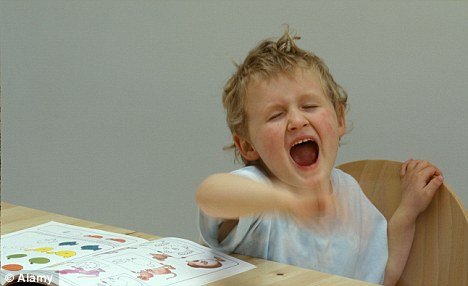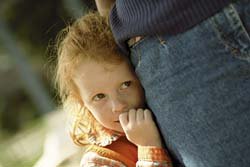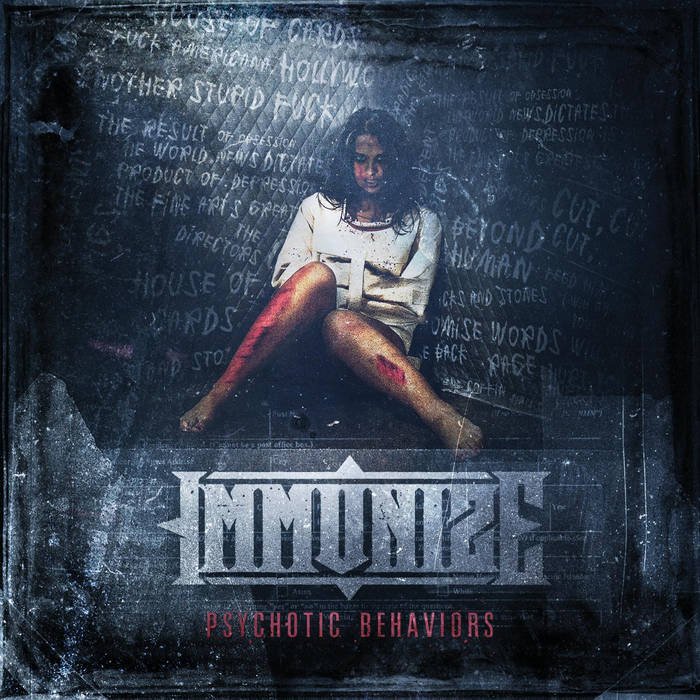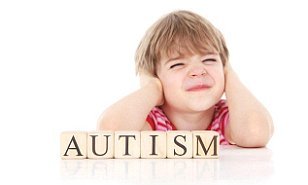Introduction
Children with emotional disturbance are variously referred to as children with behaviour disorder or children with social or emotional maladjustment. One's learning or academic background usually determines the terminology one may adopt. The psychologist for instance, may prefer to refer to these children as children with behaviour disorders but sociologist may prefer to call them socially maladjusted children. In schools,teachers refer to them as aggressive or heady children,when in conflict with the law,the judges may call them delinquents. Who are the emotional or behavioural disturbed children.
Definition
Emotional/behaviourally disturbed children are children who deviate from age or socially acceptable behaviour. This deviation may not only interferes significantly with the personal development but also interferes markedly with the lives of others. These children are mentally and socially alienated to their enviroment though not mentally retarded. They may be unwilling or afraid to participate in whatever goes on in their enviroment whether social or intellectual but rather choose to stay alone,play alone,work alone and associate with none of their mates. They exhibit non- general oriented but self-stimulating behaviour like turning a spoon or a piece of stick ,tossing a coin and arranging disarranged, or re-arranging of things . These children,however can be assisted to unlearn their undesirable behaviour as well as learn age appropriate behaviour or socially acceptable behaviour.
Types of Behaviour Disorders
A number of behaviour disorders manifest in many ways. According to Okeke (2001) some exist during childhood, some mild,others chronic. Among them are autism,hyperactive reaction,overanxious and withdrawal reactions, unsocialized aggressive reaction,stuttering,runaway reaction,psychotic behaviour and neurotic behaviour.
Autism
This is a childhood form of severe psychological disorder. The child with this kind of disorders engages' in repetitive routine and would cry if interrupted. The autistic child has severe speech problems and communication is carried out in a most rudimentary fashion or by the echolatic repetition if a few words. He/she is a loner and lacks interest in other people and reality. In other words,this individual is characterized by intense withdrawal of contact with other people. The child could also convey a non-human identity by posture,movement or sound,for example barking or rocking or calling himself an inanimate object. There is also the tendency for the child to insist on the preservation of sameness. The child would always and would vehemently resist an attempt to alter their positions. According to Okeke (2001) the autistic child is neither toilet trained nor able to feed himself/herself. He also engages in routine manipulation of objects.
Hyperactive reaction Hyperactive reaction is a behaviour disorder that occurs in early childhood. Hyperactive children,although have above intelligence,perform poorly in school. This is because they are restless,they have a short attention span,easily distracted,i.e. moving in and out of seat. They also have poor motor co-ordination and a low frustration level. They are unable to focus on a set goal or activity.
 http://normlwomensalliance.org/2013/08/does-cannabis-help-adhd/
http://normlwomensalliance.org/2013/08/does-cannabis-help-adhd/
Overanxious and withdrawal reactions This is manifested in such problem behaviours like hypersensitivity, feeling of insecurity,fear,inferiority complex,lack of self-confidence and being too anxious over little things  http://kidsandmeds.umwblogs.org/dsm2/
http://kidsandmeds.umwblogs.org/dsm2/
Unsocialized aggressive reaction This kind of behaviour disorder is either hereditary,enviromental or a combination of both. It is hereditary where parents of such children are alcoholic,psychotic,criminal or otherwise disordered,they transmit these behaviour disorders to their children. Unsocialized aggressive reaction is examplified in such behaviour disorder like aggressiveness, quarrelsomeness, stealing,lying,disobedience. Children with this behaviour disorder display temper tantrums,they are hostile and are unable to conform to established codes of conduct. They are outlaws and are difficult to manage. Supporting the above , Ross and Ross in Robinson and Robbinson ( 1976) asserted that aggressive and violet behaviour come under one of the most difficult and demanding problem behaviour the special education teacher is ever confronted with.  http://kidsandmeds.umwblogs.org/dsm2/
http://kidsandmeds.umwblogs.org/dsm2/
Stuttering:
The child with this behaviour disorder speaks with sudden pauses and has a tendency to repeat the same sound or syllable rapidly either because of having a speech problem or from fear, excitement etc. The child with this behaviour disorder stammers. The stuttering child makes short sharp noises or movements.  https://eastersealsdfvr.wordpress.com/2016/05/17/my-child-is-stuttering-will-he-or-she-grow-out-of-it/
https://eastersealsdfvr.wordpress.com/2016/05/17/my-child-is-stuttering-will-he-or-she-grow-out-of-it/
Runaway reaction
According to Ifelunni in Okeke (2001) Runaway reaction or "splitting" occurs more in girls than in boys. This behaviour disorder occurs as an isolated incident or as part of a history if "crisis-flight" responses to which some young people and even adult resort. English in Coleman (1976) summarizes reasons for running away from home into three categories:
(1) Getting out of destructive family situation such as the girl,who runs away to avoid sexual advances by her father.
(2) Running away for altruistic reasons,fr example, in a desperate effort to draw attention to and change a disturbed family situation.
(3) Having a secret unsharable problem, such as girls being pregnant.
However, individuals with this behaviour problem should be made to understand that no problem is unsharable and that solutions can be proffered to resolve most behaviour disorders.
Psychotic behaviours
This is a severe disturbance of ego functioning which impairs capacity for adequate thought, speech and self-identity. The psychotic individual is one who has lost touch with reality. It is manifested in behaviour disorder, like adjudicated juvenile delinquency. They also have difficulties in the area of education and vocation.  https://immunizemetal.bandcamp.com/releases
https://immunizemetal.bandcamp.com/releases
Neurotic behaviour
This is manifested in organic disorders such as over-activity, distractibility and impulsiveness. The neurotic child has a sudden urge to act without thinking about the result.
Typical characteristics of children with Behaviour Disorder
Children with behaviour disorder show one or more of the following characteristics to a significant degree over a period of time. These characteristics according to Denga (1987) include:
- Inability to learn which cannot be adequately explained by intellectual, sensory, neuro-physiological or general health problem
- Inability to build or maintain satisfactory interpersonal relationship with friends, teachers and others.
- A general pervasive mood of unhappiness or depression.
- Immature or infantile behaviour or feelings under normal conditions.
- A tendency to develop physical symptoms such as speech problems, pains, phobias or chronic fears associated with personal or school problems.
- Inattentive , indifferent and apparently lazy.
- Is actively excluded by most of the children whenever they have a choice to exclude him from their company.
- Aggressive towards teachers parents, and peer group. Other aggressive signs include fighting, hitting, kicking, biting etc
- Impulsive behaviour. He is impatient and over-zealous.
- Truancy. He leaves home for school but does not reach the school. He returns home after school hour.
- They display temper tantrums which refers to unnecessary and excessive anger with everybody, everything and even themselves or others.
- Hatred for self and general sense of inferiority in other words very poor self- concept.
Probable causes of Behaviour Disorder
Several factors have been found to cause behaviour disorders among children. These could be genetical, enviromental or a combination of both.
Genetic factors:
The hereditary make up of the individual can predispose the individual to behaviour problems. Hereditary factors are such variables like chromosomal abnormalities, Rh incompatibility minimal brain dysfunction , brain tumor etc. According to Okeke (2001) Behaviour disorder has been ascribed to chromosomal abnormalities. For instance, she continued, a situation of extreme genetic abnormality called phenylketonuria (pku) (in which the gene that produces a critical enzyme is missing) can result in mental retardation if not treated soon after birth. Brain damage has also been identified as the cause if different deviations like hyperactivity and perceptual -motor problems. Supporting the above Hurlock(1978) described pre- and post natal accidents, which evetually led to brain damage and were later associated with the development of problem behaviour in the affected individual. Other health problems like epilepsy, asthma, sickle cell etc may cause behaviour disorder in children. In addition, there may be some physiological problem in the anatomy of the individual. For instance dysfunction of the nervous system. A child who had cerebral palsy may have behaviour disorder or problems. It is therefore important to note that genes determine hereditary transmission and any gene related accidents during pre and post natal periods could lead to behaviour problems.
Enviromental factors:
The enviroment also plays a vital role in a child's development. Certain factors in the enviroment, to a large extent determine what becomes of the growing child. These factors are home or family,societal and school factors
Home/parental Influence
According to Umezulike (2006) the home is the first place where teaching and learning begin soon after birth. The children therefore learn much at this stage and the outcome of learning manifest as either behaviour disorder/or acceptable behaviour. To buttress the above. Nwosu (1997) maintained that the way and manner a child is brought up by the parents in the family tells the kind of behaviour the child will manifest while in school.
Okeke (2001) stated that parents' child rearing styles or practices are also responsible for deviant behaviour among children. In line with the above, Nwosu (1997) found that laissez-faire and autocratic patental styles of discopline (more than the democratic) fosters more deviant behaviour. Children from over strict homes become socially maladjusted because they lack certain social skills to interact with others.
Children from broken homes, homes of marital instability where they lack affection are prone to behaviour disorders. Thus a child who knows no love gives no love to anybody, Supporting the above, Montgomery (1972) further states that the rejected child shows aggressive, violet, and vengeful behaviour. Similarly Faser (2001) maintained that parents who engage in violence, abuse drugs and alcohol or neglect their children increase the likelihood that their children will manifest deviant behaviours.
From the foregoing, one can see that the child's experience at each stage of development lives some characteristic impression and imprint that influence his future adjustment. Parents should therefore strive to influence their children positively and not contribute to making them behaviourally disordered. They should also be made to understand that they could contribute to the child's behaviour disorders through the type of family relationship existing in their various home/family.
Societal Influence:
Children in Nigeria are in a difficult dilemma when seen in the light of the cultural diversities the polity. They live in the society in which most adults indulge in the act of stealing, lying, prostitution, bribery and other negative attitudes. Thus Nwosu (1997) opined that social recognition such as materialism greed and corruption is highly correlated to students deviant behaviours. It is no news that the social changes in Nigeria have left children feeling isolated and disconnected. In Nigeria children are not only torn between conflicting values, where materialism and individualism hold sway, but also by a tradition of mediocrity and differential opportunity which are woven into the social fabric of the system.
Worse still, students are growing up without values for the simple reason that the character development aspect of education is now performed by the mass media. This in itself would have been a positive development except in Nigeria, we have lost control of the content. The programming content of our television and radio stations are foreign dominated. Foreign drama, featuring characters with broken homes, broken lives fierce marital conflict, violent values and mercenary dispositions have now become the role models for our children. This in turn contribute to behaviour disorders.
Social factor:
School is an important institution after the home which is responsible for training children for shouldering the responsibility of future life. The school of today has become even more important with additional responsibilities which were formerly the exclusive province of home.
Children therefore come to the school with all the influences they acquired both from home/family and the community. According to Peke (2001), the school is supposed to assist children to realize and enhance their potentials in socially acceptable ways. However, the school may become a source for acquiring behaviour disorders by pupils. The following factors in the school have been closely associated with behaviour disorders. The include defective curriculum and examination system, monotonous lessons and low interest in pupils, lack of facilities in the school, partially on the part of the teachers and leadership style of the teacher. Thus, Oker (1995) stated that some teachers use stringent autocratic control which has effect of reducing students resourcefulness and initiative.
In Addition a child relationship with his peers in the school can affect his emotions and leads to emotion disorders. A child could be rejected or isolated simply because of his race or other special factor. According to Akubue(1991) peer group plays an important role in socializing the children,the students look at their age mates and peers for clues as how they should behave. Similarly, Nwankwo (1994) observed that the group to which a student belongs exercises influence on his behaviour. This influence can be positive or negative depending on whether the aim of the group are social or antisocial.
Intervention strategies and procedures
The task of helping behaviour disordered children is very complex one and requires the co-operation of home, school and the Society. Parents and other members of the family can help the child to build good habits, attitude and sound value system, because the child remains in their company in early childhood when permanent impression can be created in the mind of the child. It is unfortunate that in our country many parents are illiterate and do not know the basic principles of behaviour modification and are conservative in their outlook. Most children develop behaviour disorders because of misleading parents. Parents, in big cities, who are educated have no time to look after their children properly.
Nevertheless, psychologist agree that behaviour disordered are not born but they are the product of environmental influences. It is acquired or learned so can as well modified by the same principles as other behaviour. An individual can learn constructive socially acceptable behaviour through behaviour modification techniques. Parents should therefore be educated on the basic principles of behaviour modification techniques and how to apply them to help their children at home.
The use of individual counseling to convince the behaviour disordered child to change the maladaptive behaviour will prove useful. Most behaviour disorders may fall within the competence of teachers, counsellors and special educators. However, when an intense maladaptive behaviour falls out of the competence of these personnel, an appropriate referral should be made for more detailed and scientific screening. Referrals could be made o medical Doctor, social welfare officer, psychologist, psychiatrist or the pastor.
References
Alibis, A. U. (1991). Classroom Organization and management: A five point strategy. Ibadan: Wisdom publisher Ltd.
Fraser, J. (2001). Preventing Youth Violence: The effectiveness of parent and family based strategies. Development. University of Pittsburgh,Office of child development.
Hillock, E. B. (1978). Child development. Singapore :McGraw-Hill Book Company Inc.


We all can do well to learn more about the mind and how we can help each other cope and be more understanding of what others are dealing with. I am thankful my teachers and fa,ily had creative approaches to deal with my hyperactivity and attitude problems. As i got older it became easier to not only control but use to my advantage.
my hyperactivity turned to an ability to hyper-focus and ingest loads of information and I have been able to turn my anger into an ability to tune into my own and others feelings. For many people it only takes some creativity and support for them to be able to cope with and even grow from their disorders.
Wow
Thank God that you have a family that believe and supports you
That is nice of you. Well understood
Thanks dear
After reading this am becoming a psychologist right away.
Thanks
Lol
You better join us.....oooooh
Unfortunately, our society is yet to fully appreciate and utilize the services of trained professionals such as psychologists, councellors, special teachers, etc, in dealing with our children.
Our only solution is prayer to change the child.
Well researched post indeed.
Thanks @joagawu for sharing this.
@largerben
You are always welcome @largerben
Parents have a big role to play. Many leave their roles for the teachers. Many too are inexposed and despises the services of counsellors. Only God will help the kids but why give birth to kids if you wont attend to them snd their problems
Thanks dear
This was a bit lenghty yet very revealing. A must-read for all parents and wouldbe parents.
Thanks dear
Autistic people are usually amazingly and extraordinarily talented people, i just wonder why people esp those of us in africa havent been able to find a way to integrate them into the society. Awesome post @joagawu
Thanks dear
You have done justice to the topic. All i can say is wow..! I am impressed. Keep dropping it like its hot. Its a beautiful work.
@antigenx
Thanks dear
This is the most educating post I have come across today, Weldone ma'm....you did a great research only that we live in a country where researchers and research works aren't appreciated
Thanks dear ,am glad you found it imparting
Very educative post @joagawu. Thanks
A very detailed post on behavioural disorders in children. I can't imagine my kid is suffering from such illness. Every parent should ensure that their children are not going to suffer from these. Early detection and proper intervention might bring a different result.
Thanks for such an wonderful post :)
My dear....we parents has an important role to play....especially mothers...we need to catch them young... Thanks for stopping by...
Good job you have done here. Thanks for dropping this valuable piece of Information. It has given me some things i have been missing all the while.
Thanks dear
Wonderful.